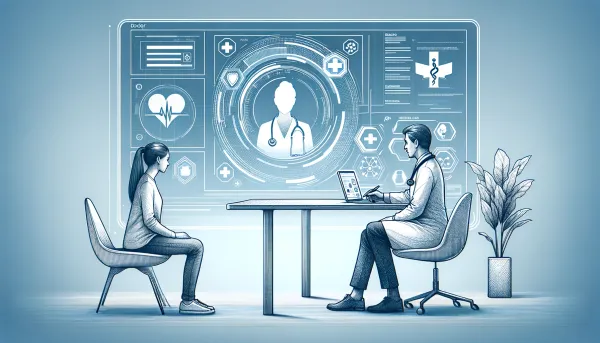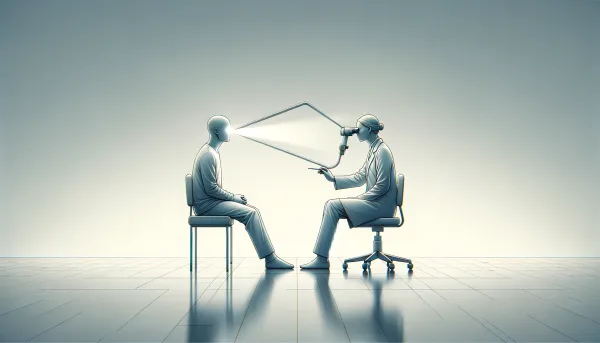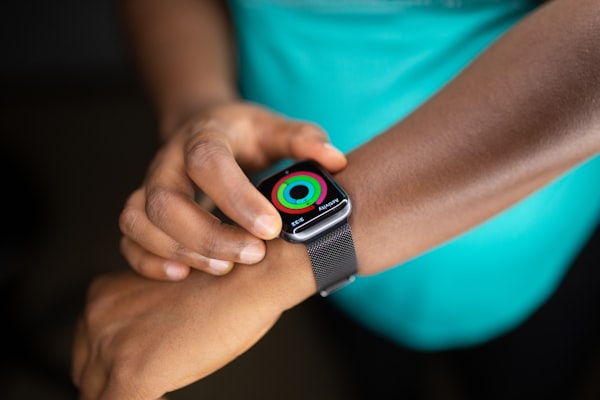Plant-based…really?
Plant-based diet, share some resources about people that help during the pandemic and in the end touch on the potential of quantum computing in medicine.
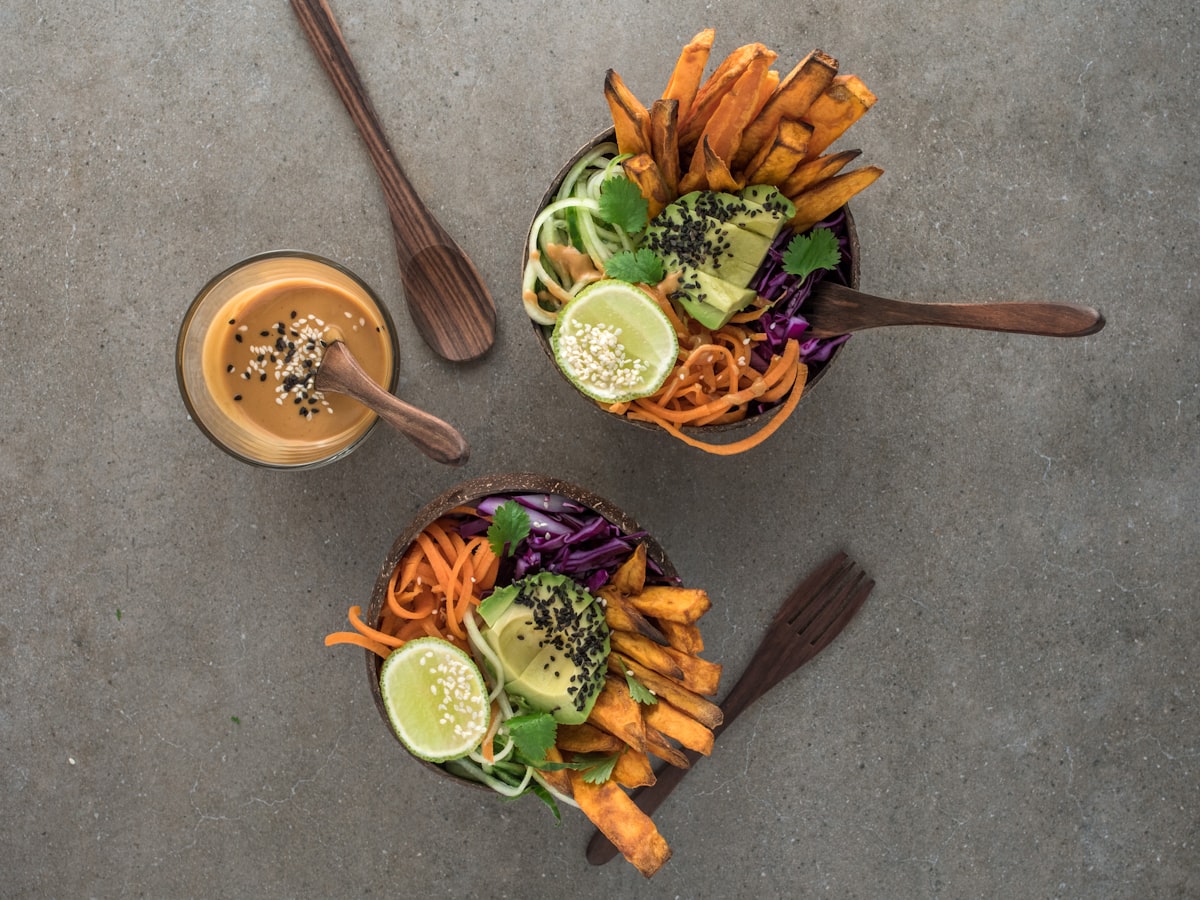
I hope you’re doing well. In this issue of Sunday MashUp I’ll dig deep into a plant-based diet, share some resources about people that help during the pandemic and in the end touch on the potential of quantum computing in medicine.
Nutrition
The topic of a plant-based diet has been interesting to me in the last couple of months. Let’s say I accumulated enough resources to share my thoughts and some resources on this. This is going to be a long section.
Here are the resources I used to find all of this out: The Game Changers and What The Health movies, The Diet Compass book by Bas Kast, Mark Hyman MD on a podcast episode. I’ll also include links within the text.
The goal of this section is not to get people to switch from their current diet. It is to be aware of the facts.
There are more and more resources that show how a plant-based diet is better for our body and long-term health. Some of the benefits are lower cholesterol, better performance, lower blood pressure to name a few. Some athletes such as Novak Djokovic, Chris Paul and Lewis Hamilton are swearing by it. (The Game Changers)
It’s easy to think that a plant-based diet doesn’t give us a sufficient amount of protein. But if you think about it, all animals that we eat needed to get their protein somewhere - from plants. It’s also incredible that for some reason the protein we get from animals is different than that from plants. Animal protein appears to be worse for us than plant protein and we don’t know why. (The Game Changers, The Game Changers)
Eating enough protein with plants seems like an impossible task. I can’t imagine myself eating plant-based. And if I did, I’d have to spend too much time preparing the meals. And that’s one of the main problems - the time it takes to prepare the meals.
Another problem is vitamin B12 (and also some other nutrients), which is essential for proper nerve function, synthesis of red blood cells and more. Vegans and vegetarians need to be careful of their B12 intake because plants don’t naturally contain it. But not even animals contain it naturally any more. It’s produced in the bacteria in the soil, but as we add more antibiotics to animals, we’re lowering their B12 levels. It’s at a point where we have to be adding it to animals in the form of supplements.(The Game Changers)
I always thought that the human body is made to eat meat. But a lot of the evidence shows against it. Firstly, our teeth are made for chewing, not tearing. Secondly, we developed a trichromatic vision, whereas carnivores have a dichromatic one. This means we’re better suited to find ripe fruits and vegetables. Thirdly, our digestive tract is longer and thus better suited for plant digestion. (The Game Changers)
A big argument in favour of a plant-based diet is climate change. Agriculture would be the third largest producer of greenhouse gases if it were a country. By cutting down our meat consumption, we would decrease the amount of greenhouse gas emissions and be more efficient. This is because animals are an intermediary and some of the nutritional value of plants is of course lost. But there’s no way we could live just from plants. We cannot eat all types of them, so we need animals to transfer the nutritional value in a form that’s edible to us.(Mark Hyman MD on a podcast episode)
How about plant-based meat? There already are some companies that produce it. Their idea is that because we’re so reliant on the taste of meat, they started making products that taste the same from plants. That’s what a farmer in the Netherlands is doing and he’s very successful. I also think this is a great approach. See this video on LinkedIn.
There’s so much to consider when it comes to this “issue”. We cannot expect to shift our entire diet to plants. I have 2 final thoughts on this. Number one is from a podcast episode, which argues we should eat “plant-rich, not plant-based”. Number two is from my English teacher: “do everything in moderation, including moderation”.
Coronavirus
I try to keep this at a minimum, but there were some really interesting reads out there this week. Here’s a New York Times “trio” of articles.
Final year medical students across the USA and the UK got their MD sooner than expected because of the pandemic. I imagine this is also happening in some other countries. They even took the Hippocratic oath via video chat.
The pandemic has changed how we use the internet. This is another awesome article and shows what’s happening. Smartphone use decreased, but there’s been a spike in traffic on video-streaming services and social media.
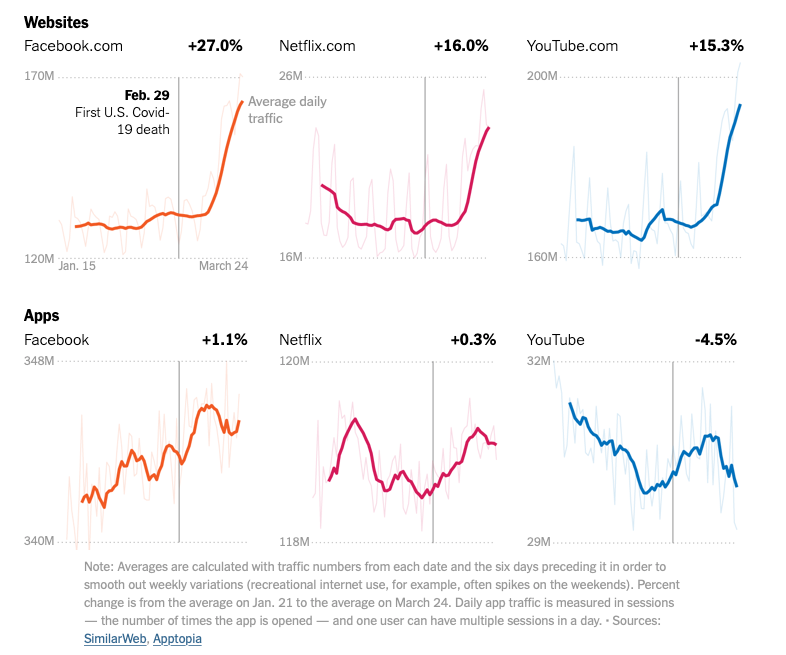
Other than that, video games are on the rise and video chat services unsurprisingly as well.
This last one is a story about 3 medical students or residents that were or still are also professional athletes. Hayley Wickenheiser is a Canadian hockey player and now a medical student. She’s the Canadian hockey team scoring leader. Laurent Duvernay-Tardif is the only active NFL player with a medical degree. Myron Rolle is a former American football player that is now a neurosurgery resident at Harvard Medical School. This is all impressive and inspiring!
Tech
This blog post argues what kind of applications quantum computing could have on healthcare. A quantum computer is a computer that uses quantum mechanics instead of bits (1 and 0) to perform computations. What I didn’t know is the number of applications this could potentially have on healthcare. It has the potential to:
- Make drug design more efficient and save a lot of time and billions of dollars.
- Substitute animal and human trials. This would allow us to run virtual drug trials.
- Speed up DNA sequencing and make it more precise.
- Make sense of huge amounts of data and make patients “point of care”.
- Improve the decision support system for doctors. It could scan millions of research papers and help doctors reach the perfect decision.

